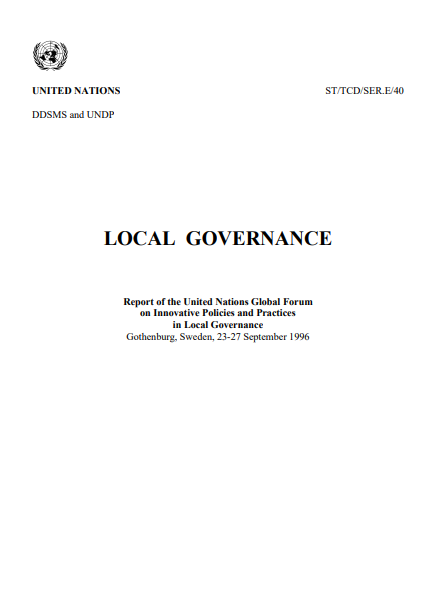
Discussions about innovative aspects of the relationship between central and local government (with a view to decentralization and strengthening the mobilization of civil society) are critical to the practical implementation of the Agenda for Peace and the Agenda for Development which have been proposed to the Member States by the Secretary-General. There is a special need to review the process of local governance since, in the Resolution adopted by Member States following the Resumed Session on Public Administration and Development in April of 1996, one of the critical areas identified for further attention is the issue of transfer of power to local government and the empowerment of civil society. Today's local administrators have a vital role in maintaining an active social fabric which will ensure a balance between the dangers of excessive central government and the irresistible atomization of individuals. Local governments that have real power can more effectively address local interests as well as exercise a check on operations at higher levels of authority.
 Bienvenue aux Nations Unies
Bienvenue aux Nations Unies